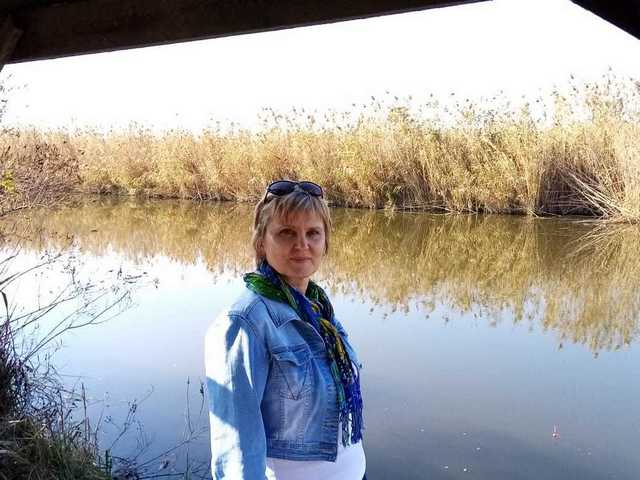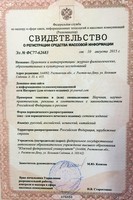
«ДА, Я ТОЛЬКО СТРАННИК, ТОЛЬКО СКИТАЛЕЦ НА ЗЕМЛЕ! А ЧЕМ ВЫ ЛУЧШЕ?»: СТИХОТВОРЕНИЕ И.В. ГЁТЕ «СТРАННИК» И «СТРАДАНИЯ ЮНОГО ВЕРТЕРА»
Аннотация
Статья посвящена сквозному для всего творчества Гёте мотиву странствования и его воплощению в стихотворном диалоге И.В. Гёте «Странник» (1772) и романе «Страдания юного Вертера» (1774). В романе обнаруживается характерное для творчества Гёте «контрастное сочетание странника и идиллии» (Kaiser), которое впервые появилось у Гёте в «Страннике». В статье продемонстрированы как сходство деталей, конституирующих идиллию в романе и диалоге (женские образы, эстетические мотивы, новаторский пейзаж и т. д.), так и зеркально противоположные трактовки мотива странничества в этих произведениях. Вертер в статье представлен как необычный для творчества Гёте вариант образа странника, который жаждет прервать свое странствие.
Ключевые слова: Иоганн Вольфганг Гёте, «Странник», «Страдания молодого Вертера», идиллия, пейзаж, странник, мотив странничества.
DOI 10.18522/2415-8852-2019-4-16-42
Полный текст:
PDFЛитература
Аверинцев, С.С. Внешнее и внутреннее в поэзии Вергилия // Поэтика древнеримской литературы / под ред. М.Л. Гаспарова. М.: Наука, 1989. С. 22–52.
Аникст, А.А. Творческий путь Гете. М.: Художественная литература, 1986.
Бахтин, М.М. Формы времени и хронотопа в романе // Бахтин, М.М. Эпос и роман. Санкт-Петербург: Азбука, 2000. С. 11–193.
Вергилий. Буколики. Георгики. Энеида / пер. с лат. С. Шервинского и С. Ошерова. М.: Художественная литература, 1971.
Гете, И.В. Из «Итальянского путешествия» // Гете, И.В. Собрание сочинений в 10 томах / пер. с нем. Н. Ман, А. Михайлова, Н. Вильмонта. Т. 9. М.: Художественная литература, 1980. С. 5–240.
Гете, И.В. Страдания юного Вертера // Гете, И.В. Собрание сочинений в 10 томах / пер. с нем. Н. Ман, Н. Касаткиной, А. Габричевского, С. Шлапоберской, И. Татариновой, А. Федорова. Т. 6. М.: Художественная литература, 1978. С. 7–102.
Голдсмит, О. Путник, или Взгляд на общество // Голдсмит, О. Избранное: Стихи. Векфилдский священник / пер. с англ. Т.М. Литвиновой. М.: Художественная литература, 1978. С. 22–37.
Жирмунский, В.М. Гете в русской литературе. Ленинград: Наука, 1982.
Жуковский, В.А. Путешественник и поселянка // Немецкая поэзия в переводах В.А.
Жуковского / cост. А.А. Гугнин. М.: Рудомино; Радуга, 2000.
Конради, К.О. Гете. Жизнь и творчество. Т.1. Половина жизни. М.: Радуга, 1987.
Рош, Д. Путешествия // Мир Просвещения. Исторический словарь. М.: Памятники исторической мысли, 2003. С. 359–368.
Шиллер, Ф. О наивной и сентиментальной поэзии // Шиллер, Ф. Собрание сочинений в 7 томах / пер. с нем. под ред. Л.Е. Пинского. Т. М.: Гос. изд. худ. лит., 1957. С. 385–477.
Goethe, J.W. von. (1887–1919). Briefe. 1773 [Letters.1773]. In Goethes Werke. IV. Abteilung,
Bd. 2 [Goethe’s works (Vol.2)]. Weimarer, 52– 138. Retrieved from: http:// http://www.zeno. org/Literatur/M/Goethe,+Johann+Wolfgang/
Briefe/1773 // (date of access: 20.08.2019).
Goethe, J.W. von. (1887–1919). Briefe. 1831 [Letters.1831]. In Goethes Werke. IV. Abteilung, Bd. 49 [Goethe’s works (Vol.49)]. Weimarer, 26– 184. Retrieved from: http:// http://www.zeno. org/Literatur/M/Goethe,+Johann+Wolfgang/Briefe/1831 (date of access: 20.08.2019).
Goethe, J.W. von. (1960). Der Wandrer [Wanderer]. In Poetische Werke in 16 Bänden [Poetic works in 16 Vols.] (Vol.1). Berliner Ausgabe, 389–396. Retrieved from: http:// http:// www.zeno.org/nid/20004841565 (date of access: 20.08.2019).
Kaiser, G. (1977). Wandrer und Idylle. Goethe und die Phänomenologie der Natur in der deutschen Dichtung von Gessner bis Gottfried Keller [Wandrer and idyll. Goethe and the phenomenology of nature in German poetry from Gessner to Gottfried Keller]. Göttingen: Vandenhoeck & Ruprecht.
Kaiser, G. (2003). Wandrer und Idylle im Werk Goethes – speziell im „Faust“[Wandrer and idyll in Goethe’s work – especially in “ Faust“]. In GoetheJahrbuch 2003 [Goethe yearbook 2003] (Vol. 120). Weimar: Hermann Bohlaus Nachfolger, 29–43.
Levy, S. (1885). Goethe und Oliver Goldsmith. In Goethe-Jahrbuch 2003 [Goethe yearbook 2003] (Vol. 120). Goethe-Jahrbuch 1885. №6. S. 281–298. Retrieved from: http:// http://www.digizeitschriften.de/dms/ img/?PID=GDZPPN003036170 (date of access: 20.08.2019).
Pache, W. (1983). Idylle und Utopie: Zur Rezeption Oliver Goldsmiths in der Goethezeit [Idyll and Utopia: Oliver Goldsmith’s reception in the Goethe era]. In K. Richter, & J. Schönert (Eds.). Klassik und Moderne: Die Weimarer Klassik als historisches Ereignis und Herausforderung im kulturgeschichtlichen Prozeß. [Classical and modern: Weimar classics as a historical event and challenge in the cultural-historical process]. Stuttgart: Metzler, 135–158.
References
Averintsev, S.S. (1989). Vneshneye i vnutrenneye v poezii Vergiliya [External and internal in the poetry of Virgil]. In M.L. Gasparov (Ed.), Poetika drevnerimskoy literatury. [Poetics of ancient Roman literature]. Moscow: Nauka, 22–52.
Anikst, A.A. (1986). Tvorcheskiy put’ Gete [Goethe’s creative path]. Moscow: Khudozhestvennaya literatura.
Bakhtin, M.M. (2000). Formy vremeni i khronotopa v romane. [Forms of time and of the chronotope in the vovel]. In M.M. Bakhtin, Epos i roman. [Epic and novel]. Saint Petersburg: Azbuka, 11–193.
Goethe, J.W. von. (1887–1919). Briefe. 1773 [Letters.1773]. In Goethes Werke. IV. Abteilung,
Bd. 2 [Goethe’s works (Vol.2)]. Weimarer, 52– 138. Retrieved from: http:// http://www.zeno. org/Literatur/M/Goethe,+Johann+Wolfgang/ Briefe/1773 // (date of access: 20.08.2019).
Goethe, J.W. von. (1887–1919). Briefe. 1831 [Letters.1831]. In Goethes Werke. IV. Abteilung, Bd. 49 [Goethe’s works (Vol.49)]. Weimarer, 26–184. Retrieved from: http:// http://www.zeno.org/Literatur/M/ Goethe,+Johann+Wolfgang/Briefe/1831 (date of access: 20.08.2019).
Goethe, J.W. von. (1960). Der Wandrer [Wanderer]. In Poetische Werke in 16 Bänden [Poetic works in 16 Vols.] (Vol.1). Berliner Ausgabe, 389–396. Retrieved from: http:// http://www.zeno.org/nid/20004841565 (date of access: 20.08.2019).
Goethe, J.W. (1980). Iz «Ital’yanskogo puteshestviya» [From “Italian journey”]. In J.W. Goethe. Sobraniye sochineniy v 10 tomakh. [Collected works in 10 Vols.] (Vol. 9) (N. Man, A. Mikhailov, & N. Wilmont, Trans.). Moscow: Khudozhestvennaya literatura, 5–240.
Goethe, J.W. (1978). Stradaniya yunogo Vertera [The sorrows of Young Werther]. In J.W. Goethe, Sobraniye sochineniy v 10 tomakh. [Collected works in 10 Vols.] (Vol. 6) (N. Man, et. al., Trans.). Moscow: Khudozhestvennaya literature, 7–102.
Goldsmith, O. (1978). Putnik, ili vzglyad na obshchestvo [The traveller. The traveller’s prospect of society]. In O. Goldsmith, Izbrannoye: Stikhi. Vekfildskiy svyashchennik. [Selected works. Poems.The vicar of Wakefield] (T.M. Litvinova, Trans.). Moscow: Khudozhestvennaya literatura, 22–37.
Kaiser, G. (1977). Wandrer und Idylle. Goethe und die Phänomenologie der Natur in der deutschen Dichtung von Gessner bis Gottfried Keller [Wandrer and idyll. Goethe and the phenomenology of nature in German poetry from Gessner to Gottfried Keller]. Göttingen: Vandenhoeck & Ruprecht.
Kaiser, G. (2003). Wandrer und Idylle im Werk Goethes – speziell im “Faust” [Wandrer and idyll in Goethe’s work – especially in “Faust”]. In GoetheJahrbuch 2003 [Goethe yearbook 2003] (Vol. 120). Weimar: Hermann Bohlaus Nachfolger, 29–43.
Konradi, K.O. (1987). Gete. Zhizn’ i tvorchestvo. T.1. Polovina zhizni [Goethe. Life and creativity. Half a life] (Vol. 1). Moscow: Raduga, 1987.
Levy, S. (1885). Goethe und Oliver Goldsmith. In Goethe-Jahrbuch 1885 [Goethe yearbook 2003] (Vol. 6), 281–298. Retrieved from: http:// http://www.digizeitschriften.de/dms/ img/?PID=GDZPPN003036170 (date of access: 20.08.2019).
Pache, W. (1983). Idylle und Utopie: Zur Rezeption Oliver Goldsmiths in der Goethezeit [Idyll and utopia: Oliver Goldsmith’s reception in the Goethe era]. In K. Richter, & J. Schönert (Eds.), Klassik und Moderne: Die Weimarer Klassik als historisches Ereignis und Herausforderung im kulturgeschichtlichen Prozeß [Classical and modern: Weimar classics as a historical event and challenge in the cultural-historical process]. Stuttgart: Metzler, 135–158.
Roshe, D. (2003). Puteshestviya [Travels]. In Mir Prosveshcheniya. Istoricheskiy slovar’. [The world Of Enlightenment. Historical dictionary]. Moscow: Pamyatniki istoricheskoy mysli, 359– 368.
Schiller, F. (1957). O naivnoy i sentimental’noy poezii [On naïve and sentimental poetry]. In F. Schiller, Sobraniye sochineniy v 7 tomakh [Collected works in 7 Vols.] (Vol. 6) (L.E. Pinsky, Trans.). Moscow: Gos. izd. khud. lit., 385–477.
Virgil. (1971). Bukoliki. Georgiki. Eneida. [The Eclogues. The Georgics. The Aeneid] (S. Shervinsky, & S. Osherov, Trans.). Moscow: Khudozhestvennaya literatura.
Zhirmunskiy, V.M. (1982). Gete v russkoy literature [Goethe in Russian literature]. Leningrad: Nauka.
Zhukovskiy, V.A. (2000). Puteshestvennik i poselyanka [The traveller and the countrywoman]. In A.A. Gougnin (Ed.), Nemetskaya poeziya v perevodakh V.A. Zhukovskogo [German poetry in translations by V. A. Zhukovsky]. Moscow: Rudomino; Raduga.
Ссылки
- На текущий момент ссылки отсутствуют.
(c) 2019 И. А. Черненко
ISSN 2415-8852
Свидетельство о регистрации СМИ Эл № ФС77-62683 от 10 августа 2015 г.
Регистрирующий орган: Федеральная служба по надзору в сфере связи, информационных технологий и массовых коммуникаций (Роскомнадзор)
УЧРЕДИТЕЛЬ: ФГАОУ ВО "Южный федеральный университет".
344006, г. Ростов-на-Дону, ул. Большая Садовая, 105/42,
тел. +7 (863) 218-40-00 E-mail: info@sfedu.ru
Адрес редакции: 344006, г. Ростов-на-Дону, пер. Университетский, 93, к. 8, тел. +7(903) 43-12-321
e-mail: oadzhumaylo@sfedu.ru

Произведения доступны по лицензии
Creative Commons «Attribution» («Атрибуция») 4.0 Всемирная.

